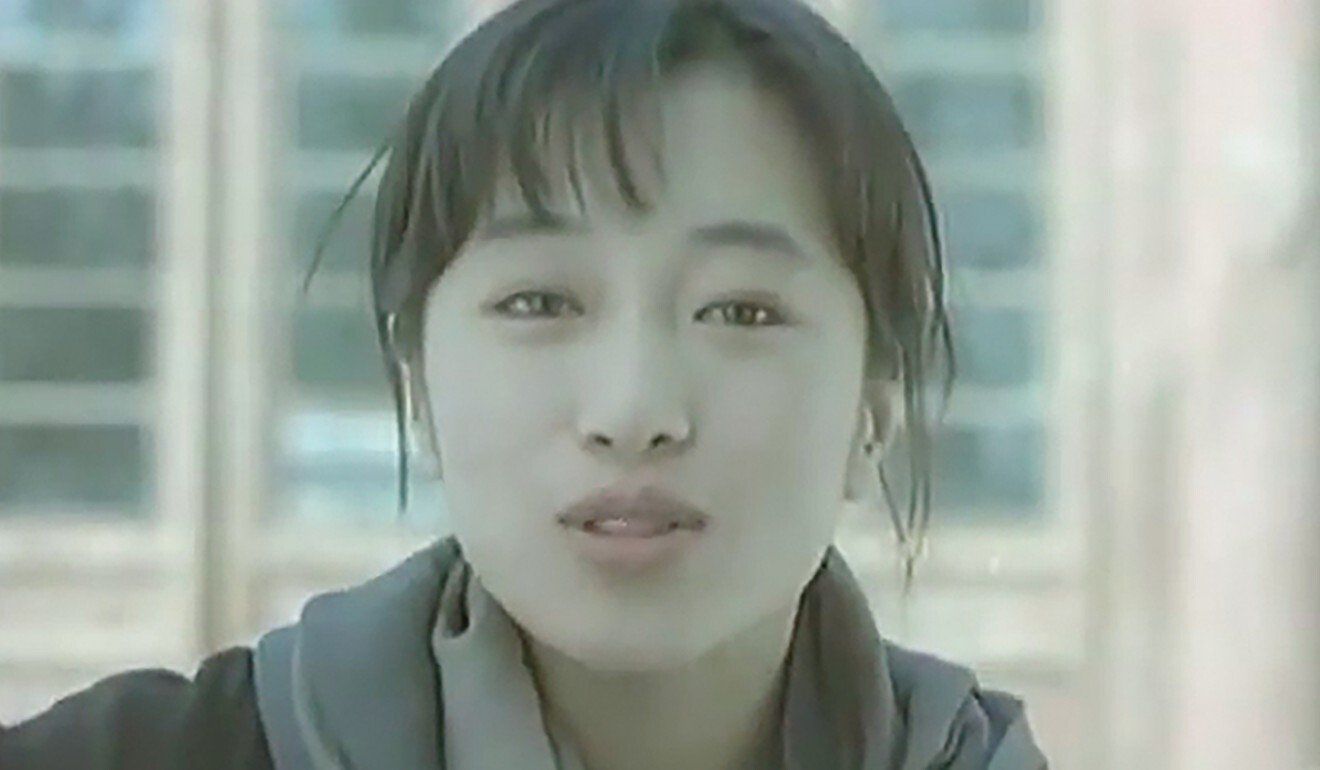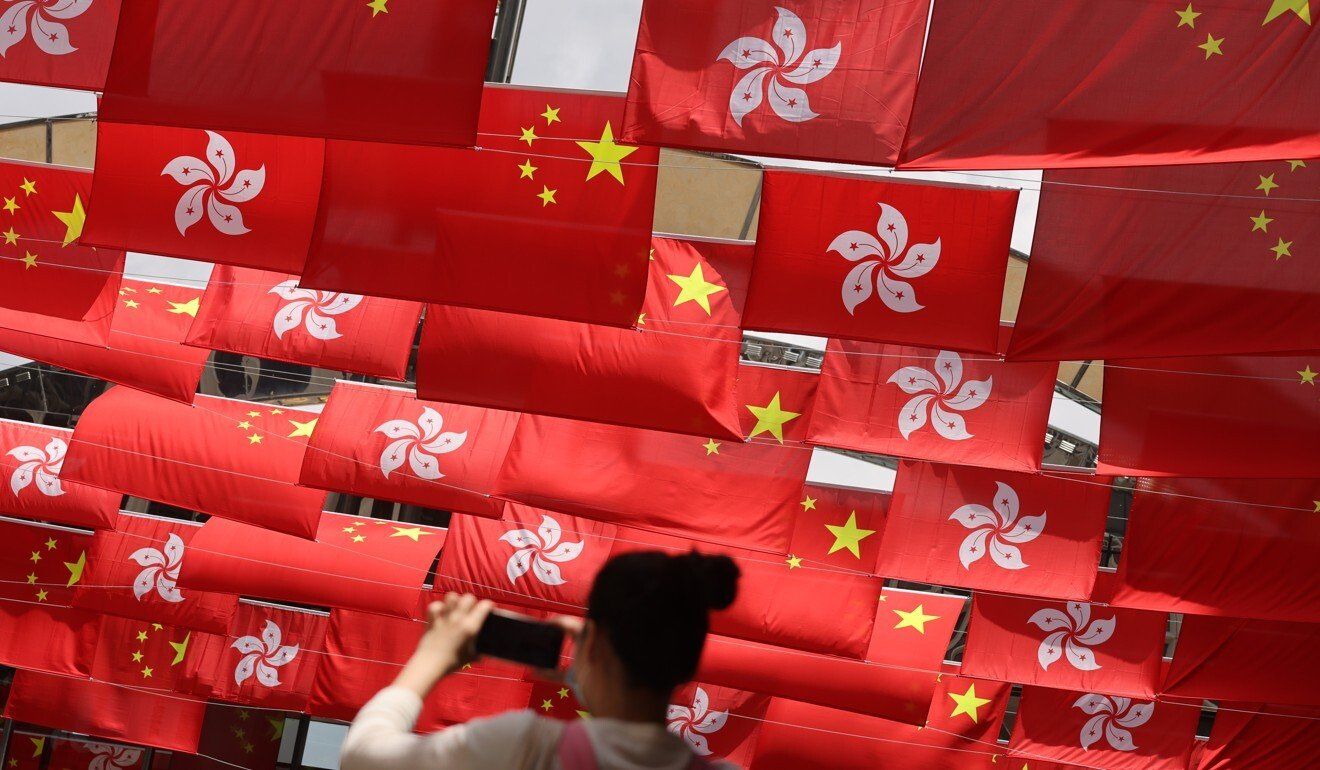
2 hit songs reflect mainland Chinese sentiment over Hong Kong, Taiwan policy
“1997, please come soon, then I can go to Hong Kong …” the old song goes, and who would have thought back then that these lyrics could still mean so much so many years later.
When 23-year-old Ai Jing, a mainland Chinese folk and pop singer, released My 1997 in the early 1990s, it became an immediate national hit as the stage was being set for Hong Kong’s handover from British to Chinese rule.
While Ai claimed it was only a love song about a mainland girl longing to see her Hong Kong boyfriend, many interpreted the political implications as well.
 A still from the music video of My 1997 by Ai Jing.
A still from the music video of My 1997 by Ai Jing.
“Let me go to the flowery world [Hong Kong]. What is Yaohan like? Let me stand at the Hong Kong Coliseum, let me see a midnight movie with him …”
Twenty-five years later, there are no more Yaohan Japanese chain department stores here and the city now has grander stadiums than the one in Hung Hom, to list a few changes.
The younger generation of mainlanders today may not even remember this song. Instead, they are enthralled by a new hit, Let’s Take a Bullet Train and Go to Taiwan in 2035.
“Let’s go to Taiwan in 2035, to see Grandma’s Penghu Bay, and the Alishan [Mountain] full of love songs ...” the song goes. And it’s gone viral enough for a spokesperson of Beijing’s Taiwan Affairs Office to sing its praises, declaring that it represents the “keen wishes” of mainlanders to see the return of Taiwan to the motherland.
2035 is the date Beijing has set as its long-term goal to “basically achieve socialist modernisation”, and many on the mainland believe that China will be strong enough by then for reunification.
As the curtains came down in Beijing last week on the much anticipated sixth plenum of the Chinese Communist Party, this new song was in the spotlight again.
The communique at the end of the plenum, for the first time, touched on Taiwan and Hong Kong. The Communist Party officially endorsed the “resolute implementation” of the principle of “patriots” governing Hong Kong to ensure the success of “one country, two systems”, and it reiterated its firm “one-China” policy on Taiwan.
Some pundits noted that Hong Kong and Taiwan had never been mentioned in the party’s previous “historic resolutions” in the past as they were non-issues back then.
Ahead of the Communist Party’s final victory in taking over China, Mao Zedong told visiting Soviet Union representative Anastas Mikoyan in early 1949 that he had no plan to take Hong Kong back because “being flexible about Hong Kong can help our future import and export trades”. After that, Deng Xiaoping in the 1980s came up with his creative one country, two systems governing formula for post-1997 Hong Kong.
Fast forward to the present day and these are the issues now.
Beijing has declared its “comprehensive jurisdiction” over the city and set red lines to enforce zero tolerance of any independence advocacy in Hong Kong, followed by the imposition of the national security law in response to the 2019 social unrest. All of this was hailed by the plenum as necessary for “a great shift from chaos to governance in Hong Kong”.
Including the one-China principle on Taiwan in this party resolution suggests eventual “reunification” as its official historic goal.
 National and city flags in Hong Kong’s Tsim Sha Tsui marking the 24th anniversary of the handover.
National and city flags in Hong Kong’s Tsim Sha Tsui marking the 24th anniversary of the handover.
But this is a difficult mission as Taiwan has been self-ruled for decades, has its own military, and has the United States as an official ally, adding to the complexity.
With the plenum cementing President Xi Jinping’s role as supreme leader, how will he deal with Taiwan? And how can mainland public sentiment play a part in Beijing’s approach?
Just as My 1997 drew mixed admiration for Hong Kong by describing the city as a “flowery place” with a colourful life, Let’s go to Taiwan in 2035 reflects mainlanders’ desire to see the many splendid landscapes of Taiwan.
Only time will tell if 2035 is too soon, too late, or just a hypothesis. But if Hong Kong may serve as a historic mirror, it’s a matter of how to work out the best-case scenario by seriously recognising the “red lines”.











